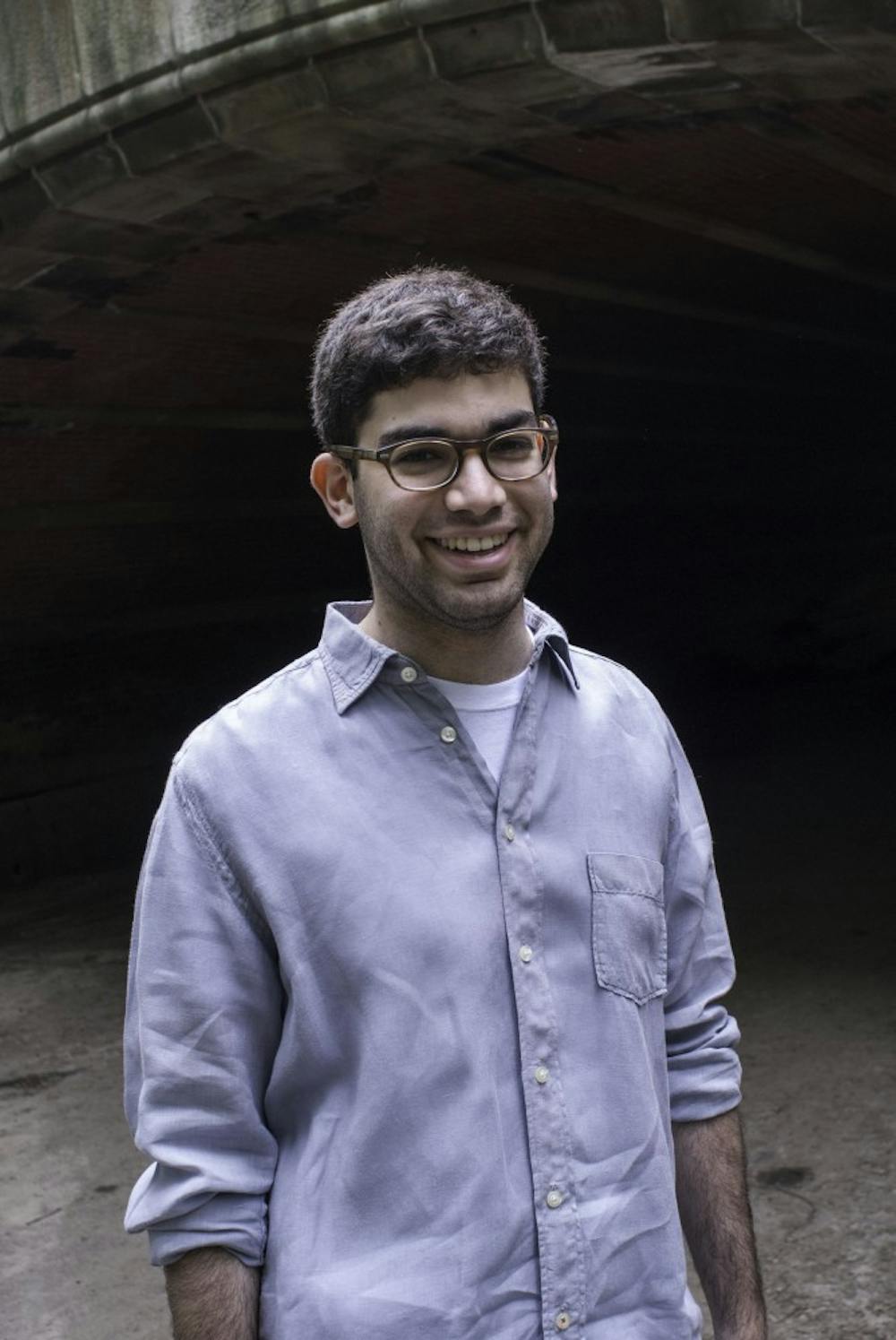With the semester coming to a close, the Nominations & Elections Committee elected Wharton junior Michael Roberts as its new chair this weekend. The Daily Pennsylvanian spoke with Roberts about his plans for the upcoming year.
DP: What role does the NEC play in student life for students who are not familiar with its role?
Michael Roberts: The NEC has really three main missions. The first is we run elections for the UA and class boards and we are in charge of making sure that the elections are fair. Our second mission is nominating people to different committees that meet with administrators, so one of the big things we do is nominating constituencies to have seats on University Council, a committee that meets with very high up administrators like Amy Gutmann. We also do University-wide committees — basically we nominate students so that they have access to administrators that they wouldn't otherwise have … Our third ultimate mission and something we are really going to work on this year is education — basically educating the student body about student government. That’s the area that will be of most development and focus this year. I think it's really important because of all the great things student government does. A lot of people think that the NEC is very behind the scenes and bureaucratic, but that’s the opposite of what we are trying to be. We really want to reach as many students as possible. Something we are going to try to do a lot more this year is being really open and receptive to students.
DP: Why did you want to be NEC chair?
MR: The NEC is something I really love. Beyond the fact that I love the people on the NEC, I think the work we do is really cool. We have a unique job in Penn student government in that we serve as the framework for it and we get to interact with different branches. The work we do is also really cool in that we are very much advocates for students and all about empowering student voices.
DP: What are you going to do differently in the NEC this year?
MR: We have a lot of the same things that come up every year like election cycles and University Council applications. Something that I would like to do is to diversify the candidates we get and the people who actually come in contact with Penn student government. People think it’s a very insular thing, that only certain people can run for UA or only certain constituencies can apply to University Council. I'd really like to push the undergraduate student body to push beyond those boundaries, and I think the NEC’s going to work really hard this year to definitely try and touch more communities at Penn.
DP: How specifically can more communities get involved?
MR: [They can] run for either class board or UA, apply for different committees that we nominate to or come up with referendum, any of the multiple ways they can come into contact.
DP: The referendum to divest from fossil fuels this year was the first of its kind at Penn. Is the NEC looking to encourage more referendums in the future?
MR: I think that’s a great question — we are still trying to see how effective it is. It's really great to see people getting involved in the process and people mobilizing on campus. We’re definitely going to be looking at new ways that we can use this to reach other communities at Penn and get them more involved in the different processes that student government can provide to them. It's definitely something we are going to think about more because it's never really came up while anyone in the [NEC] body has been on campus, so it's going to be a big topic of discussion this year.
DP: How are you going to reach out to diverse communities?
MR: I think the first step is getting people on campus to understand what student government is. It’s the same umbrella organization that publishes the White Paper, runs the elections, plans Hey Day and also does Spring Fling. Getting people to understand all the ways that they are touched by student government and recognizing that more will hopefully make them much more comfortable getting involved in other areas of student government.
DP: How do you deal with trying to make sure that enough people run in the elections?
MR: This year, class board elections were not as competitive as in years past, which might just be a one-year thing. We are definitely going to work more on what we call “operation run,” which is getting people excited about running and letting them know the things they can achieve by running in these positions and definitely trying to get more diversity of candidates, like getting students from different parts of the Penn community that we don’t really see in these elected positions.
This Q&A has been lightly edited for clarity and length.



